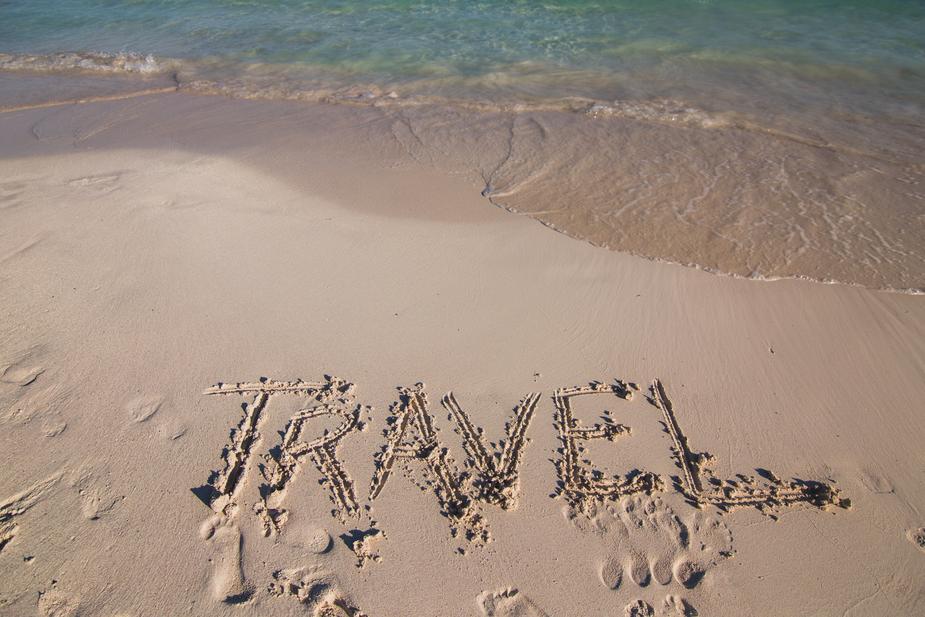Over the decades, travel has become a multibillion dollar industry. It keeps growing and becoming more accommodating, and we now find that plane tickets are cheaper, that there are travel agencies at every corner, that tourism is booming, and that all you really need to go somewhere these days is some money and a bit of free time.
As an interpreter, I travel more than an average person for the sake of work. And honestly? It’s all made so easy for me. I hardly have to plan anything on my own, and going from one end of the world to the other is no fuss at all. But comfort and convenience have their price, and it goes well beyond money.
The fact that I travel so much has actually made me think: how am I impacting the planet? And how can I make it better? While these are only my musings, they are based on research and experience, and if you want your own vacations and work trips to be more sustainable, read on.
1) Start with the Culture
If you ask your parents, they might remind you of a time when travelling somewhere meant having to learn at least a smattering of that country’s language. If you wanted to know how to ask for directions, or book a hotel room, or find a good restaurant, you had to know a few phrases.
Now? Everything is in English, and not only do you never have to inconvenience yourself to learn something new, you can even find all your favorite chain brands – from McDonalds in the middle of the square in Milano, to a huge Starbucks at pretty much every corner in Beijing.
Being a green traveler isn’t just about the environment, it’s also about our impact on the culture of the place we’re going to. It’s about the fact that a beach in Barbados and one in Cancun look almost exactly the same, because even when we go to a whole new place, we seem only to want to find familiar things and never get out of our comfort zone.
Sure, you’ll visit six museums in a day when you go to Rome, but you won’t remember any of them. Sustainable travel simply means mindful travel. It’s about paying respect to the place you’re going to, it’s about exploring and learning, not simply going to a Sephora in Paris and claiming you’ve seen France.
2) Get a Green Car
Solar-powered cars are a great way to lower your carbon footprint, and the prices are definitely getting lower as the world tries its best to find more energy-saving solutions. Since I can’t always afford to rent a green car, I also try taking the train instead of flying whenever I can. It’s slower, but unless I’m in a big rush, I actually don’t mind that at all. You get to see more of the country that way, and chugging along in a train is always better than flying in my opinion. Better for my health, and better for the environment.

3) Walk
When I fly for work, I try to be quick and efficient, but when I travel for my own soul, I prefer adventure. I want my vacations to be memorable and important, and so far, my favorite trip ever was walking the Camino de Santiago. It was hands down the most fun I’ve ever had in my life, and since I took the French Way (the longest route, basically) I got to learn so much about each little village, each little spot I visited.
I’m already planning to do it all over again next year, but even if you don’t think you’re up to such a long trip, I urge you to try similar options. You can actually go to pretty much any big city (Amsterdam is one of the best options), download a map of it, and then walk your way through it as much as you can. Don’t use cars or even public transport, simply get a good pair of shoes and see where your heart takes you. You might see fewer things, but the places that you do see, you’ll actually remember.
4) Use Less Plastic
Tourists tend to leave behind a lot of garbage. Beaches are constantly piled with junk, and most of it is plastic that gets into the oceans and pollutes the environment. Do your best to clean up after yourself, and try not to buy or bring plastic with you. Carry reusable bottles, don’t buy endless lattes in plastic cups, and carry foldable tote bags with you for those times when you want to go shopping.

5) Support the Local Economy
Bigger stores often carry merch that may not be quite as authentic as you think. That pair of castanets from Spain or that sombrero from Mexico might be carrying a “made in China” label simply because it’s cheaper to mass produce them that way, and the demand is great. Buying from local merchants who handcraft it will usually be more expensive, but you’ll have something that’s actually traditional and unique to the culture, not to mention the fact that you’ll be supporting the local economy in a more direct way. When you can, always turn to small businesses and skilled artisans. The same goes for eating out – a family-run restaurant over a chain you are familiar with.
Always be aware of the impact you’re leaving on a culture. Instead of going to big places that are congested with tourists, try travelling locally, or try exploring a country that has never crossed your mind before. Be a mindful sustainable traveler.
Latest Stories
- What are Plant Based Fibers
- 7 Sustainable and Eco Friendly Floss Options
- Anshul Magotra: How Social Innovation Circle Supports Impact Entrepreneurs
- Causeartist Brief – U.S. Department of Energy x Google, Bezos Centers for Sustainable Protein, Oregon Biochar Solutions
- Evidencity: Pioneering the Fight Against Modern Slavery Through Tech








